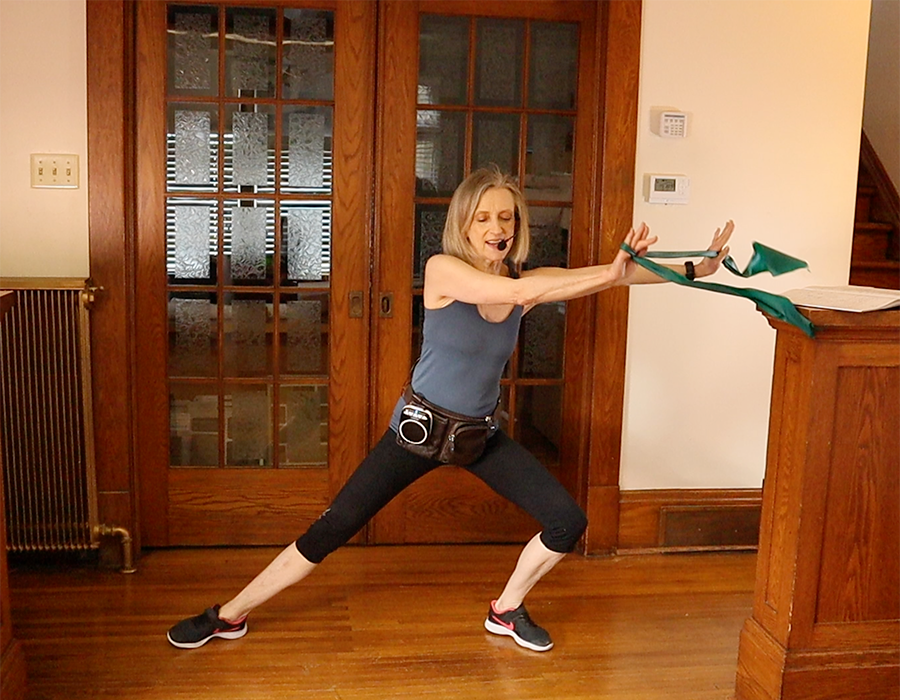As a senior’s fitness and healthy aging specialist, I do regular public speaking engagements to educate older adults on the science behind making their brain health last a lifetime. I usually begin my ‘Fitness for Your Aging Brain’ talk like this,
“Hands up! Who’s here because they’re worried about dementia?”
Typically 65% will raise a hand, which always perplexes me. Why sign up for a brain health talk if you’re not concerned about the health of your brain? I go on, “For those of you who are worried, that’s great. I’ve got good news. And for those of you who are not worried, I’ve got bad news…you should be.” Last year, the headline in the British newspaper, The Guardian, read
Alzheimer’s and dementia leading cause of death in England and Wales
-The Guardian August 6, 2019
According to the BrightFocus Foundation, 2000 to 2016 saw the mortality rate from heart disease, the leading cause of death in North America, decrease by 6% while Alzheimer’s increased by 139%. (No, you did not misread that.) So yes, you need to worry, as a matter of fact, worry enough that you start to do something about it. Now for the good news.
Scientific studies from around the world agree that the number one intervention to prevent or at least stall cognitive decline is exercise, exercise and exercise!
For chronic sitters, ‘exercise’ might mean walking down two flights of stairs to the mailbox and back. Sorry, chronic sitters, that’s not exercising. Exercise to prevent or stabilize cognitive decline requires a cardiovascular workout that gets your heart pumping and your body sweating. Once you get your heart rate up, you need to maintain that high-cardio state for a minimum of 10-15 minutes at a stretch and accumulate a minimum of 150 minutes a week.
At this point, someone in the audience inevitably says, “I don’t need to exercise because my friend and I walk every day.” To which I respond, “That’s great…. for your legs. Tell me, when you’re walking do you find it hard to talk?” They usually look perplexed by this question, so I go on, “I mean, when you walk is it difficult to talk smoothly without taking a little gasp of air in, between words? Because if you can walk and talk easily that’s not exercising, that is walking and talking. To get dementia-preventing value from exercise, you need to be huffing and puffing and taking an extra breath.”
Now to my pet peeve, so-called ‘seniors fitness’ classes.
You’ve seen them on the Internet, maybe even attended classes where perfectly able-bodied seniors are told to exercise sitting down for their safety. Yes, someone with a hip or knee problem might need to sit, but if you walk into class on your own two feet, then sitting down to get your heart rate up is nonsense. Don’t get me wrong, with the right technique it is perfectly possible to get your heart pumping while sitting down, but they don’t teach that technique.
Herein lies the danger!
Believing all exercise is created equal, many assume they don’t require more.
They’re wrong, and risk being dead wrong.
Exercising hard enough that your body requires extra oxygen stimulates your brain to produce a cocktail of neurotransmitters (molecules that send a chemical message from one brain cell to the next). Aerobic exercise also triggers the release of the protein BDNF (brain-derived neurotrophic factor) a growth hormone required for the birth and development of new brain cells.
The Great Brain Workout program takes the concept a step further. A simultaneous combination of aerobic and cognitive activity is designed to supercharge your brain. Serious exercise creates a flood of oxygen, neurotransmitters and mood-elevating hormones that create a powerful sense of emotional wellbeing that can last for days after a single workout.
More good news, a happy brain is less likely to develop dementia.
So whether you join us for a Great Brain Workout this fall, you join a gym, you dance, play ping- pong or pickleball, remember to take a chat test. If you don’t require a little gasp of air between words, you’re likely not working hard enough to get dementia-prevention value. By all means, keep going for a walk with your friends. It’s an important piece for your brain’s health. Exercise is the single most important factor in cognitive wellness as you age, so don’t stop what you’re doing now, just add more serious aerobic activity.
Lastly, some good news for chronic sitters. Science tells us that no matter when in life you start exercising, your brain begins reaping the benefit within the first 15 minutes!


